Common Home Inspection Findings in Delaware Homes
Home inspections are vital for prospective buyers, acting as a comprehensive health checkup for homes. In Delaware, this process holds special significance due to the state’s unique climate and geographical characteristics, leading to specific housing concerns. Coastal regions, for instance, might be prone to moisture issues, while inland areas could face different structural challenges.
Understanding these Delaware-centric problems is crucial for homeowners and buyers. It helps anticipate what might come up during an inspection and guides how to address potential concerns.
This article delves into the common findings in Delaware home inspections, equipping readers with invaluable knowledge.
Common Home Inspection Findings in Delaware
As mentioned earlier, Delaware’s unique geographical and climatic features significantly influence its housing landscape. Nestled on the Atlantic Coast, the state’s coastal regions often grapple with moisture-related concerns. At the same time, its inland areas can face varied structural challenges, thanks to a combination of soil types and weather patterns.
Additionally, Delaware’s fluctuating temperatures, from chilly winters to humid summers, can accelerate wear and tear on homes. This distinctive blend of factors means that Delaware homes have their own common inspection issues that differ from other states.
Whether it’s the effects of coastal humidity, soil-induced foundation concerns, or weather-related roofing wear, understanding these specifics is crucial for homeowners and prospective buyers. Knowing Delaware’s housing peculiarities ensures you’re not caught off guard during an inspection and can make well-informed decisions for your home’s longevity and value.
Below are the typical home inspection findings in Delaware that homeowners should remember:
Foundation and Structural Issues
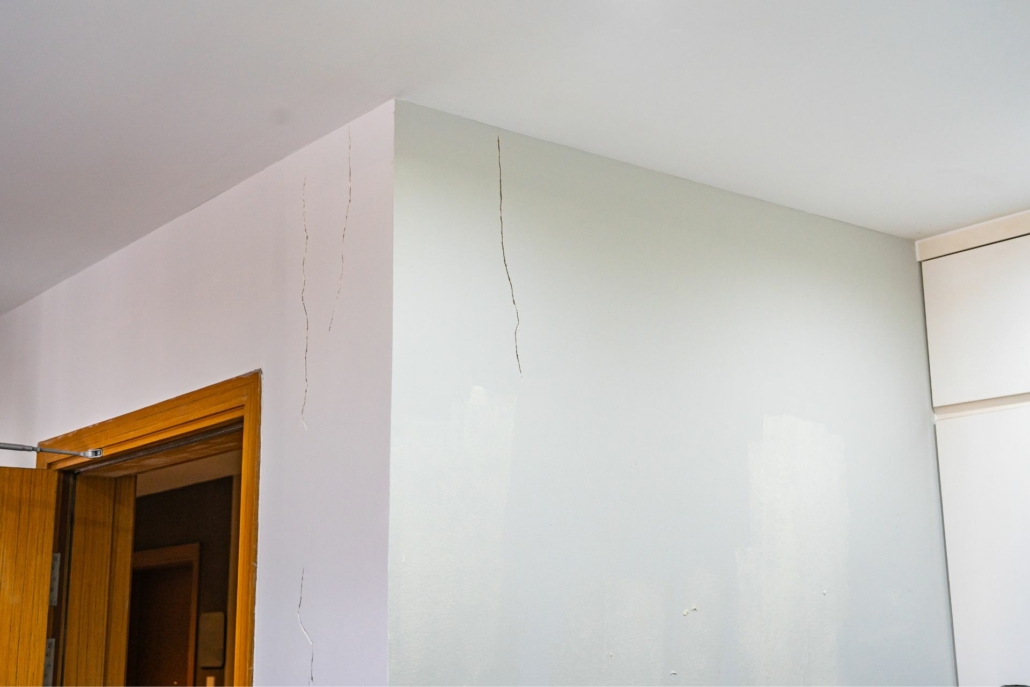
Understanding the foundation and structural integrity of a home is paramount, especially in Delaware, where the soil composition plays a significant role. The state’s diverse soil types, from sandy coastal regions to clay-rich areas inland, can lead to varied foundation challenges. For instance, clay-heavy soils can expand when wet and shrink upon drying, causing movement that adversely affects home foundations.
So, what are the telltale signs of foundation damage in Delaware homes? Here are some of them:
- Cracks in Walls or Floors: These are often the first and most evident signs. If you notice cracks growing or forming in patterns, it’s time to consult an expert.
- Doors and Windows That Don’t Close Properly: Misaligned doors and windows can indicate a shifting foundation, causing them to jam or not fit their frames.
- Uneven or Sloping Floors: If you feel a tilt in certain areas of your home or find that a ball rolls with no push, it could be a sign of foundation issues.
Addressing foundation and structural problems promptly is crucial. Left unchecked, these issues can escalate, leading to more extensive damage and costly repairs. More importantly, they can compromise the safety and integrity of the home, endangering its occupants.
Roofing and Attic Concerns
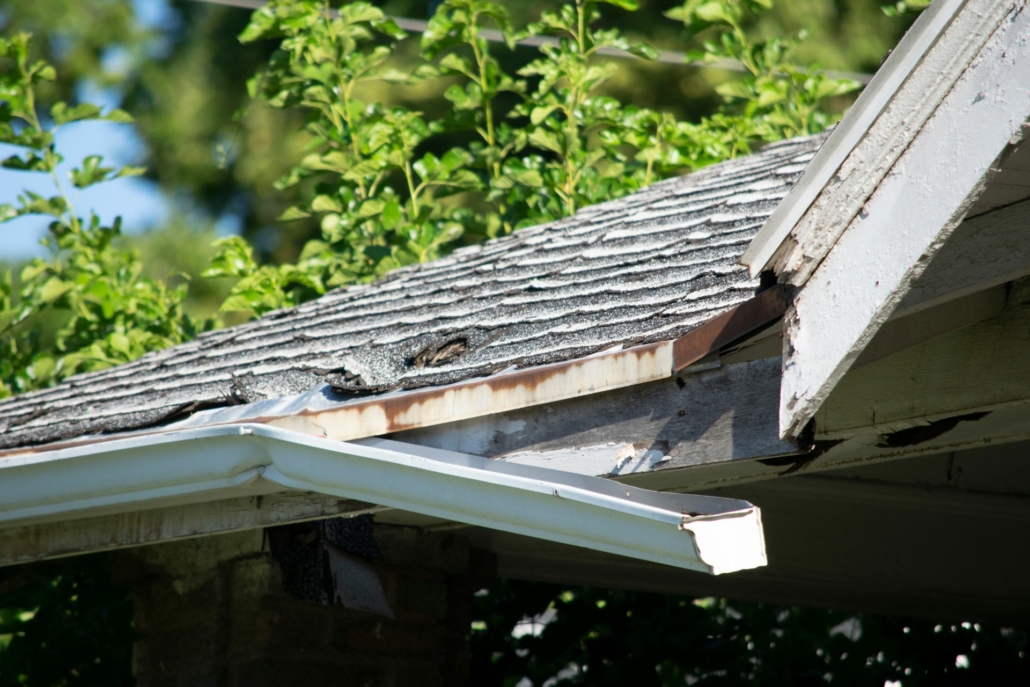
Delaware’s distinctive weather patterns can pose specific challenges to the roofs and attics of homes. From scorching summers to frigid winters, and not forgetting those surprise coastal storms, roofing materials in Delaware are indeed put to the test.
For instance, Delaware’s fluctuating weather can lead to the expansion and contraction of roofing materials. Intense sun can cause shingles to crack and curl, while the frost of winter can make them brittle. Coastal storms, with their powerful winds, can lead to shingles getting blown off or damaged.
The following are some common roofing issues to look out for:
- Missing or Damaged Shingles: Regularly inspect your roof, especially after storms, to identify and replace any compromised shingles.
- Poor Attic Ventilation: An inadequately ventilated attic can lead to a buildup of moisture and heat, causing mold growth, damaging insulation, and even warping the wood.
- Signs of Water Damage or Leaks: Discoloration on ceilings or walls, damp insulation, and mold presence are typical indicators. Regular attic checks, especially post-rainfall, can help in early detection.
- The lifespan of Roofing Materials in Delaware: While the average lifespan of asphalt shingles, a common choice in Delaware, is around 20-25 years, it can vary based on weather exposure and maintenance. Regular inspections, timely repairs, and choosing high-quality materials can extend the life of your roof.
Plumbing Problems
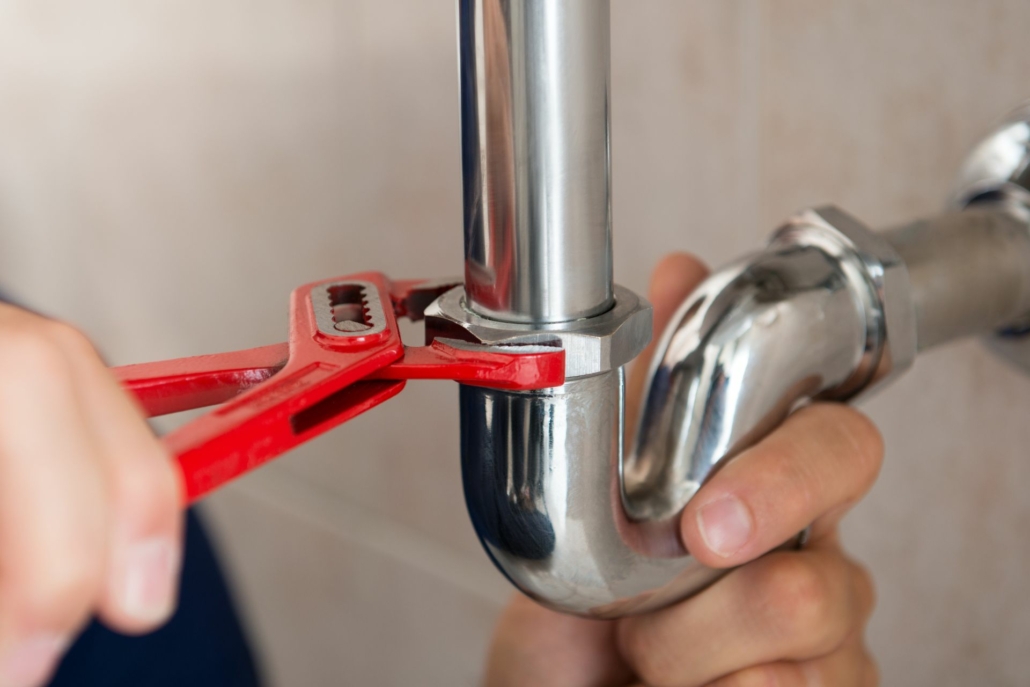
Plumbing systems are the unsung heroes of our homes, tirelessly working behind the scenes. In Delaware, certain specific factors can give rise to plumbing issues, making awareness and maintenance all the more crucial for homeowners. For instance, Delaware’s unique climate, especially its humid summers, can accelerate wear on plumbing fixtures. Additionally, homes in older Delaware neighborhoods might still have outdated plumbing materials, which could be more susceptible to deterioration over time.
On the other hand, below are the typical plumbing concerns in Delaware:
- Leaky Faucets or Pipes: Not only can these lead to higher water bills, but persistent leaks can also cause damage to cabinets or flooring. Regularly checking under sinks and in basements can catch these issues early.
- Slow-Draining Sinks or Tubs: These are often a result of blockages from hair, soap scum, or even mineral buildup. It’s essential to address slow drains before they become complete blockages.
- Water Heater Issues: Whether it’s inconsistent heating or odd noises emanating from the heater, these could be signs of sediment buildup or other malfunctions.
Electrical System Red Flags
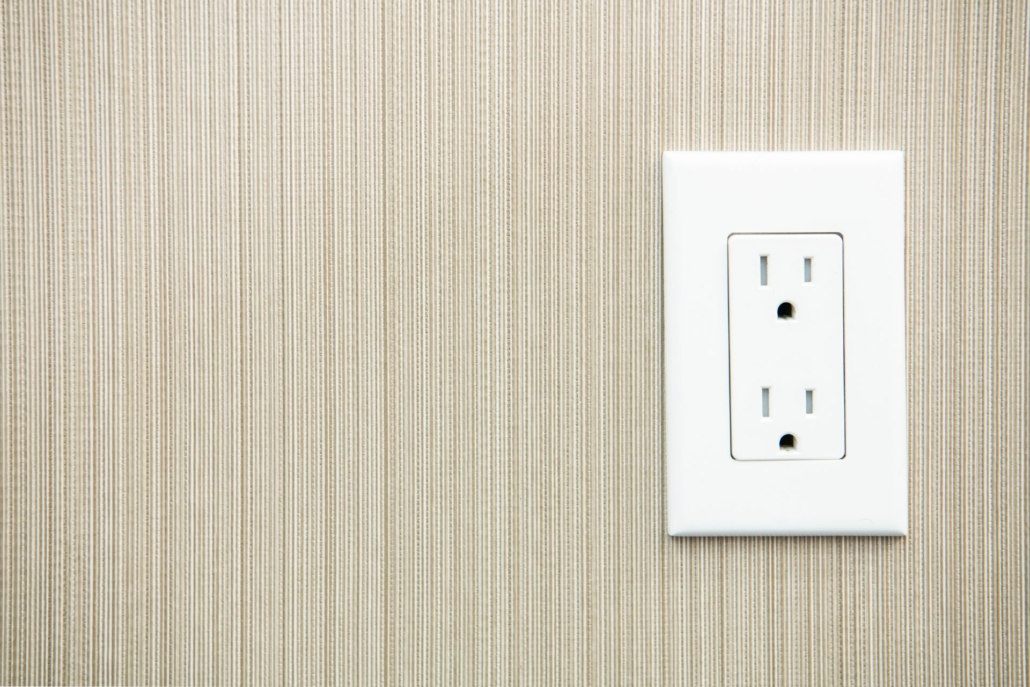
Electrical systems are the lifeblood of modern homes, powering everything from our kitchen appliances to our entertainment centers. In Delaware, with its mix of historic charm and modern constructions, understanding the electrical landscape is paramount for homeowners.
Earlier homes, built before the 1960s, often had knob and tube or aluminum wiring, reflecting the standards and needs of their time. As electrical demands grew, these systems became outdated, often failing to meet the safety and efficiency needs of modern households.
Some common electrical findings in Delaware homes to be wary of include:
- Outdated Wiring Systems: Old knob and tube or aluminum wiring is not inherently unsafe, but age, wear, and modifications over time can present risks like electrical fires or system failures.
- Inadequate Electrical Panels: Older panels might be ill-equipped to handle today’s electrical loads, leading to frequent circuit breaker trips or even potential fire hazards
- Improperly Grounded Outlets: Modern appliances need grounded outlets for safety. Ungrounded or improperly grounded outlets can pose risks of electrical shocks.
Mold and Moisture Challenges
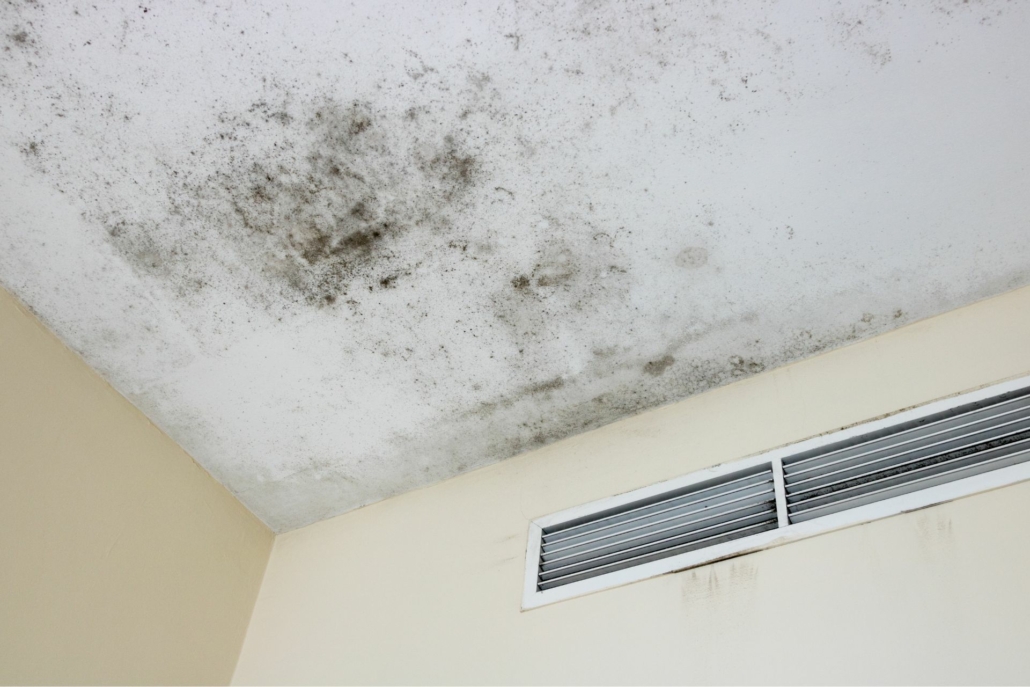
In Delaware, homeowners often enjoy coastal breezes and the beauty of changing seasons. However, the region’s humidity can sometimes introduce an unwelcome guest into homes — mold. Understanding mold, its growth triggers, and prevention measures are essential for every homeowner.
For instance, Delaware’s coastal location means humid conditions are a regular feature. High humidity levels create the perfect environment for mold to thrive, especially when coupled with stagnant air and dark spaces. This moisture can seep into homes, impacting not just structures but also the health of its inhabitants.
Below are the common areas prone to mold growth in Delaware homes:
- Basements: Often cooler and moisture-prone, basements can be mold hotspots.
- Attics: Poor ventilation can lead to trapped moisture, especially after rainfalls.
- Bathrooms and Kitchens: Constant exposure to water can make these areas particularly susceptible if not well-ventilated.
On the other hand, mold isn’t just an aesthetic concern; it poses significant health risks. Exposure can lead to respiratory problems, allergies, and skin irritations. For those with asthma or compromised immune systems, mold can exacerbate symptoms and lead to more severe health complications.
Heating, Ventilation, and Air Conditioning (HVAC) Systems Issues

Your home’s HVAC system is its respiratory system, ensuring that you live in comfort regardless of the season. Including this in your inspection offers several advantages. For instance, identifying minor issues early can prevent them from becoming significant problems later on, ensuring that your system runs efficiently and lasts longer. A well-maintained HVAC system can reduce your energy consumption, leading to noticeable savings on your utility bills.
The following are some HVAC findings in Delaware:
- Filter Issues: Dirty or clogged filters can impede airflow, reducing the system’s efficiency and lifespan.
- Faulty Thermostats: Thermostats that don’t regulate temperature correctly can lead to discomfort and increased energy consumption.
- Ductwork Concerns: Leaky ducts can lead to loss of conditioned air, impacting efficiency and indoor air quality.
- Worn Components: Components like belts and motors can show signs of wear, hinting at imminent breakdowns.
- Inadequate Insulation: Poorly insulated refrigerant lines can lead to reduced cooling efficiency and potential freezing.
- Improper Venting: Combustion appliances, like furnaces, need proper venting to expel harmful gases. Any obstruction or damage can pose safety risks.
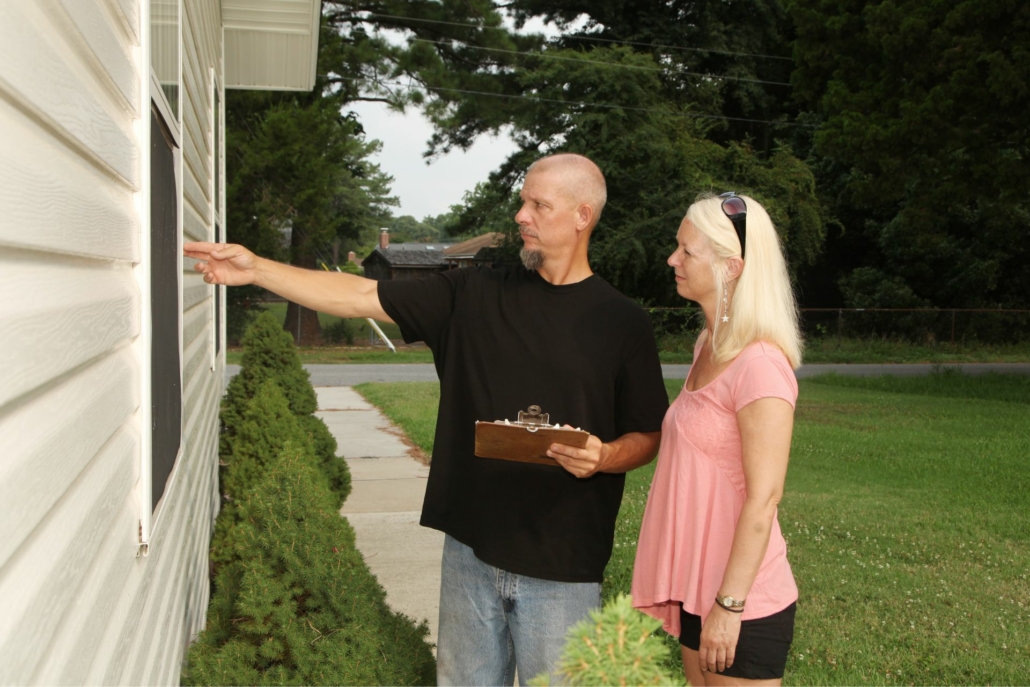
How Delaware Residents Can Address These Findings
Delaware homeowners sometimes face unique home challenges due to the region’s specific conditions. Addressing these issues promptly ensures the longevity and safety of their homes. Here’s a guide for Delaware residents on tackling common home findings effectively.
Seeking Professional Help: Trusting Local Expertise
When dealing with Delaware-specific issues, from the nuances of coastal moisture to soil-induced foundation concerns, local contractors offer invaluable expertise. Their familiarity with the region’s quirks ensures that they provide solutions tailored to your home’s needs. Here’s why you should seek professional help:
- Localized Knowledge: Delaware contractors have firsthand experience with the state’s common home challenges, making them adept at diagnosing and fixing problems.
- Community Reputation: Local contractors thrive on community trust, ensuring high-quality service and reliability.
DIY vs. Professional Repairs: What to Consider
While the DIY approach is tempting for many homeowners, it’s crucial to weigh the benefits against potential risks. For instance, simple tasks like fixing a leaky faucet or repainting a room might be within the DIY realm. However, complex issues like electrical repairs or foundation work demand professional expertise.
Furthermore, always prioritize safety. If a repair involves risk, it’s wise to trust a professional. Lastly, while DIY might seem cost-effective initially, mistakes can lead to more significant expenses. Professionals can often get the job done correctly the first time, saving money in the long run.
Wrapping Up: Home Inspection Essentials in Delaware
For Delaware homeowners, maintaining a cherished living space goes beyond aesthetic appeal—it’s about safety, value, and peace of mind. Regular home inspections from reputable providers like Preferred Home Inspection stand as a cornerstone in this endeavor, spotlighting potential issues before they escalate. By embracing proactive measures, not only do you protect your investment, but you also create a haven for your loved ones.
Also, it’s never too early to schedule your next home inspection; timely evaluations prevent minor issues from becoming costly repairs. Staying informed and prepared empowers you to make the best decisions for your home. Remember, your Delaware home is a testament to your life’s journey. Treat it with the care it deserves, and it will serve you faithfully for years.

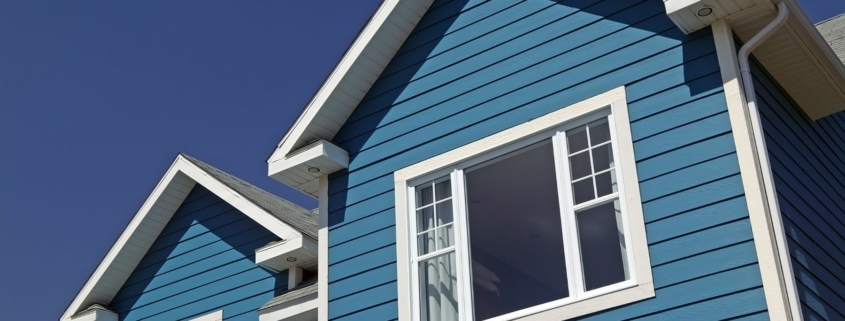



Leave a Reply
Want to join the discussion?Feel free to contribute!